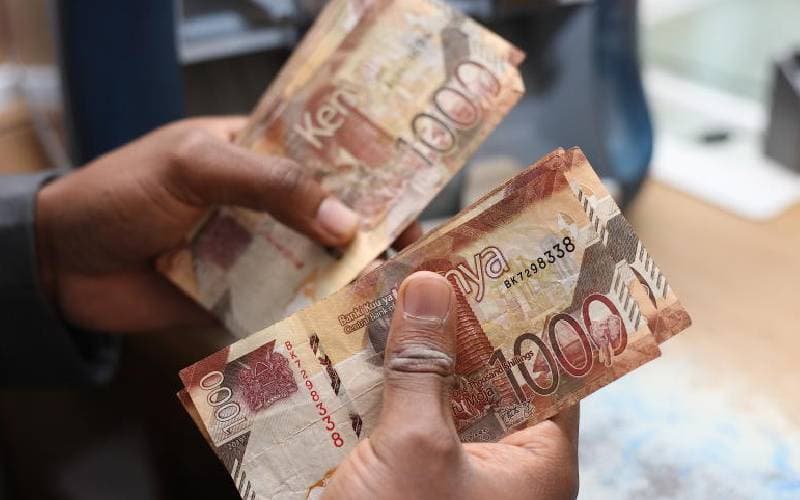We're loading the full news article for you. This includes the article content, images, author information, and related articles.
Thousands of young Kenyan entrepreneurs face a dead end as the Youth Enterprise Development Fund confirms it has received no government funding this fiscal year, stalling KSh 600 million in pending loan applications and deepening the national unemployment crisis.

The Youth Enterprise Development Fund (YEDF), a cornerstone of Kenya's youth empowerment strategy for nearly two decades, is financially paralyzed, having received no cash from the National Treasury nearly halfway through the 2025/2026 fiscal year. The fund’s Chief Executive Officer, Josiah Moriasi, delivered the stark confirmation on Tuesday, November 25, 2025, to a parliamentary committee, revealing that the institution is unable to process a backlog of loan applications totaling KSh 600 million.
Appearing before the National Assembly’s Committee on Diaspora Affairs and Migrant Workers, Mr. Moriasi stated that while the fund was allocated KSh 317 million for the current financial year, not a single shilling has been disbursed by the government. “We are keeping the high applications in the office, hoping to get funds. The rate at which applications are being made is higher than the disbursement,” he told the committee. This cessation of lending freezes the aspirations of thousands of young Kenyans who depend on the fund for critical start-up and expansion capital, directly undermining the fund's mandate to foster job creation.
The current crisis is not an isolated incident but the culmination of years of dwindling financial health, crippling debt, and questionable management. The fund's budget has been progressively shrinking, with the allocation for the financial year starting in July 2025 being cut by 55% to KSh 225 million, according to Treasury documents released in January 2025. This sharp reduction signaled a significant withdrawal of state support for the Kibaki-era affirmative action program.
Compounding the budget cuts is a catastrophic loan default rate that has rendered the YEDF's revolving fund model unsustainable. A March 2025 report citing the Auditor-General revealed that of the KSh 2.79 billion in outstanding loans as of June 30, 2024, a staggering KSh 2.09 billion had been in default for over two years. In a separate report for the period ending June 2023, Auditor-General Nancy Gathungu warned that more than KSh 2.5 billion in loans were at risk of being completely lost, with some debts remaining unpaid for over three years. Ms. Gathungu has consistently flagged the fund's poor performance, noting in a prior audit that it registered a deficit of KSh 123.2 million in the year ending June 2022, continuing a seven-year trend of financial losses.
While the lack of exchequer releases is the immediate cause of the shutdown, deeper systemic issues have long plagued the YEDF. Independent analysis and academic studies point to a history of mismanagement, corruption, and a flawed implementation framework. The fund has been marred by scandals, including the irregular payment of KSh 180 million for an ICT contract, for which a company and its directors were later convicted of economic crimes. The Auditor-General noted that as of the 2023 review, there was no evidence to indicate the amount would ever be recovered.
Furthermore, critics argue the fund lacks adequate support structures to ensure the success of the businesses it finances. Many young recipients lack the necessary entrepreneurial skills, training, and mentorship to navigate the complexities of the market, leading to high business failure rates and, consequently, high loan defaults. Research from the University of Nairobi and other institutions has highlighted that access to credit alone is insufficient without robust business development support.
The YEDF's decline also coincides with a shift in government priorities and the introduction of newer, high-profile empowerment programs. The launch of the Financial Inclusion Fund, popularly known as the Hustler Fund, and the World Bank-backed National Youth Opportunities Towards Advancement (NYOTA) project suggest a duplication of initiatives that may be cannibalizing the YEDF's resources and political support. However, these new initiatives are not without their own severe challenges. The Hustler Fund has already seen defaults on KSh 8.7 billion of its loans as of June 2024, while the NYOTA project faces a KSh 7.6 billion budgetary shortfall that threatens its rollout.
As the Youth Fund's offices hold onto the paper dreams of 600 million shillings' worth of youth enterprise, the government has yet to provide a timeline for the release of its allocated funds. For the thousands of young Kenyans who followed the proper channels and applied for state support, the empty coffers represent a profound betrayal, leaving their futures in indefinite limbo and exacerbating the very unemployment crisis the fund was created to solve.
Keep the conversation in one place—threads here stay linked to the story and in the forums.
Sign in to start a discussion
Start a conversation about this story and keep it linked here.
Other hot threads
E-sports and Gaming Community in Kenya
Active 9 months ago
The Role of Technology in Modern Agriculture (AgriTech)
Active 9 months ago
Popular Recreational Activities Across Counties
Active 9 months ago
Investing in Youth Sports Development Programs
Active 9 months ago